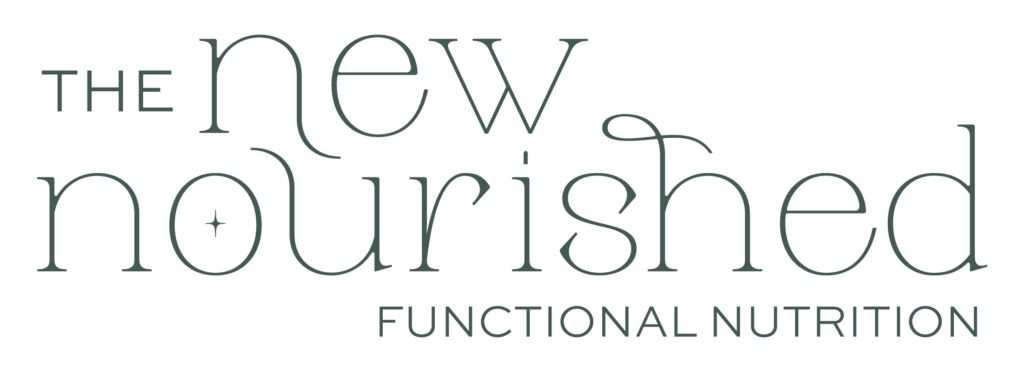
Written by Jackie Acosta, Dietetic Intern
We are constantly bombarded with mixed messages about different diets and how they may benefit our health overall but the aim of most diets are usually the same: a quick fix for whatever is making us uncomfortable, whether it be body size or unwanted physical symptoms. However, there have been multiple studies conducted to this day that state that dieting causes more harm than good, specifically due to the constant physical changes (known as weight cycling) and stress they put our bodies through. These “quick fixes” have impactful long-term effects on our health and often have people spiraling into a right and wrong mentality, resulting in confusion about what to eat.
Intuitive Eating is an evidenced based framework which primarily focuses on reconnecting with our body’s hunger and fullness cues, while also honoring our cravings and being guided by our overall needs. This is a hard concept to grasp for many people, because as opposed to dieting, intuitive eating is not a quick fix. It helps establish a deeper connection with yourself and your body, so you start making decisions based on your own intuition and trust. You start listening more to yourself rather than what others are saying.
Having this foundation of body trust is essential whether you simply want to heal your relationship with food or are also working toward physical healing such as relieving digestive symptoms or balancing hormones.
Intuitive eating is composed of 10 principles that are meant to help you break up with dieting and learn to guide yourself by your own body’s cues instead. These principles are as follows:
#1: Reject the diet mentality
In order to start having a better relationship with food, we first have to say farewell to diet culture. Getting off the diet wagon and letting go of rigid thoughts that may arise around food is what will allow us to start seeing food from a neutral standpoint. Examples of this include feelings of being on or off track, being guided by external sources instead of listening to our bodies, and or becoming obsessed with weight and weight loss at any cost.
#2: Honor your hunger
The main goal of many diets is to find ways to suppress hunger, because it is believed that this will prevent us from overeating…but the opposite is actually true. Typically, the more we suppress our hunger, the stronger our cravings become. Through intuitive eating, we learn to become curious and attuned to this need by allowing ourselves to indulge the foods we crave in a way that feels right and adequate to us. Having food readily available for when hunger arises and understanding that we are deserving of nourishment are a few steps we can take to become more aware of this biological cue. Learning to honor our hunger is the first step in rebuilding trust with ourselves and food.
#3: Make peace with food
Having a food neutrality outlook is one of the main goals of the intuitive eating lifestyle. Not categorizing foods as good or bad and instead seeing it simply as a source of satisfaction and nourishment is what sets the stage for having a better relationship with food. When we add moral value to food, we encourage a restrictive mindset and cravings will often be increased. This causes feelings of shame and guilt when eating foods off the “forbidden” list. The only way to honor our cravings is by giving ourselves full permission to eat all foods.
#4: Challenge the food police
The food police enforce all the rigid rules we have around food – that “mean girl” voice inside your head. Things such as “I can’t eat past 8 p.m.,” or “I can’t have dessert” are a few examples of food rules we may have. Though these rigid thoughts around food are done with the intention to promote health, the reality is that it keeps us disconnected from our body’s own cues, which is detrimental in the long run. The more aware we become of our diet mentality, the easier it will be to detach from it and listen to ourselves instead.
#5: Feel your fullness
Consistently eating past fullness is usually a sign that there has been restriction in the past. Thus, we eat a meal as if it were the only thing we can indulge the entire day, regardless of how we may be feeling in the moment. Through intuitive eating, we regain our natural fullness cues which will signal us when there is no longer a desire to eat. However, the only way to feel our fullness is by first honoring our hunger and giving ourselves permission to eat all foods.
#6: Discover the satisfaction factor
An often-overlooked element in eating is satisfaction. When we eat foods that we don’t genuinely like (for example, when dieting), we don’t end up enjoying it and our cravings for what we truly want increases greatly. This can lead to overeating or binging later and sabotages body connection. This principle of intuitive eating allows us to guide ourselves by our cravings instead of following a blueprint of what we are “supposed to eat”, in order to feel satisfied and content. When we allow ourselves to feel satisfied after a meal, we will notice it takes much less food to decide we’ve had enough.
#7: Cope with your emotions with kindness
There is nothing inherently wrong with emotional eating. It is a sign that we are human. However, relying too much on food to cope with emotions is not the best coping skill either. The reality is that food alone will not solve what it is you may be feeling in that moment. It may bring some sense of comfort but will also have long term effects if not looked into more in depth. The goal is to see emotional eating as something we may use occasionally to soothe or to connect with others, but to find better ways to cope with feelings when more intense situations arise.
#8: Respect your body
In a world that is guided primarily by the way we look; it is important to stay true to ourselves and understand that we are not meant to fit a mold. There is so much more to life than our physical appearance, and there is no significant evidence that states that the way we look will determine our health. When we let go of unrealistic expectations of how our bodies should look, we will find it easier to also let go of the diet mentality and nourish ourselves in the way that feels right to us.
#9: Exercise – Feel the difference
While movement is inarguably good for your health, it should be something pleasurable, not a punishment. This principle of intuitive eating focuses on shifting our goal behind exercise, to engage in activities based on how they feel, rather than how many calories they may burn. When the motivating factor behind movement is related to enjoyment rather than obligation, we’re more likely to engage in the activity.
#10: Honor your health – Gentle nutrition
After taking the time needed to heal your relationship with food and your body, you can start exploring what nourishment is and what that means to you. Health means something different for everyone. There is no one right way to be healthy; it’s what makes sense and feels right for you. It is extremely important to continue to monitor your relationship with food, as this can easily turn into a diet if we are still trapped in that mentality.
Listening to and guiding yourself by your body’s biological cues can be a difficult task to accomplish, especially if there is a history of restriction. It takes time to connect to our body if we’ve learned to disconnect from it entirely, but it isn’t impossible. The more we become aware of our patterns and include different foods from a neutral standpoint, the more this will all fall into place with time. It may be overwhelming at first, but just know that this is normal and part of the process. Remember, there is no right way to eat intuitively and there are no rigid rules to follow. It is about trusting yourself and making decisions based on your body’s feedback. It is about what feels right for you.



One Response
Wow, what an insightful read! 🌟 I love how intuitive eating emphasizes reconnecting with our bodies rather than following restrictive diets. It’s empowering to realize that food can be a source of joy and nourishment without guilt! Can’t wait to dive into those 10 principles and start honoring my hunger! 🍽️💖